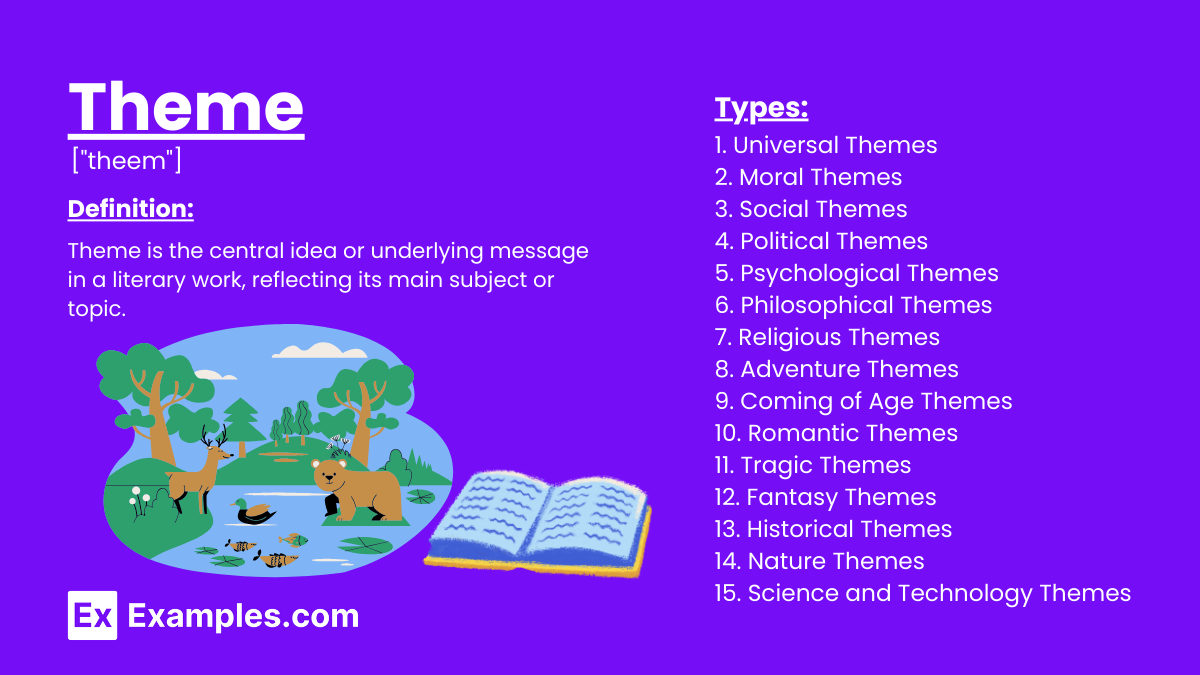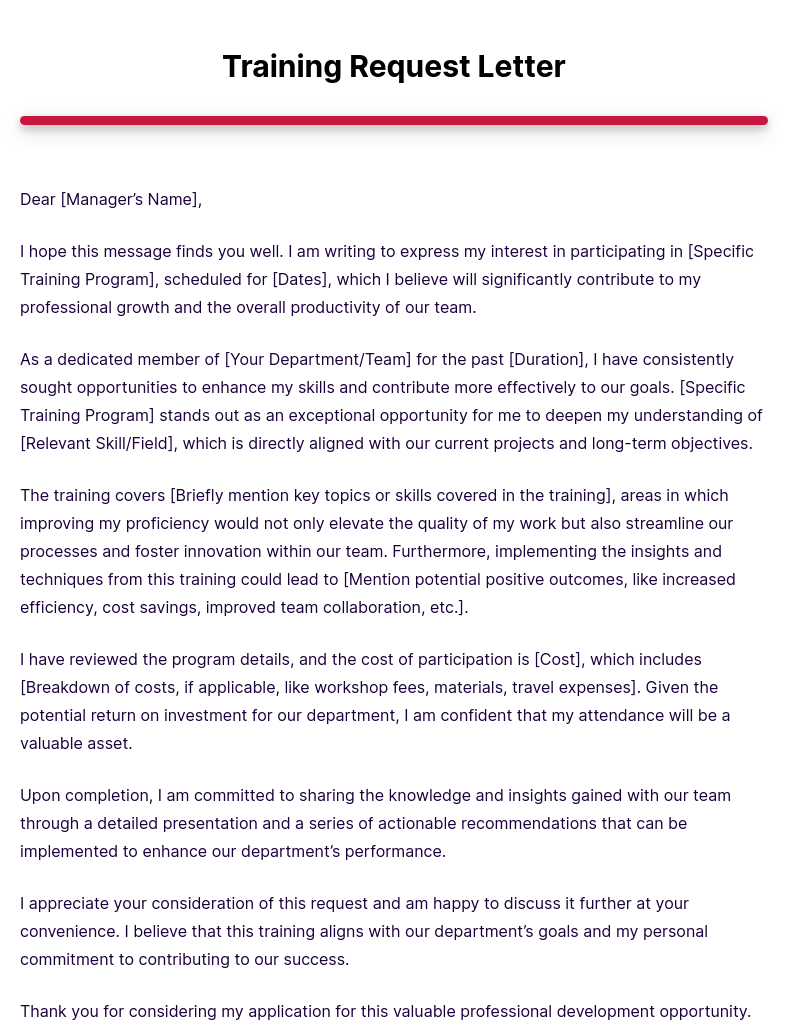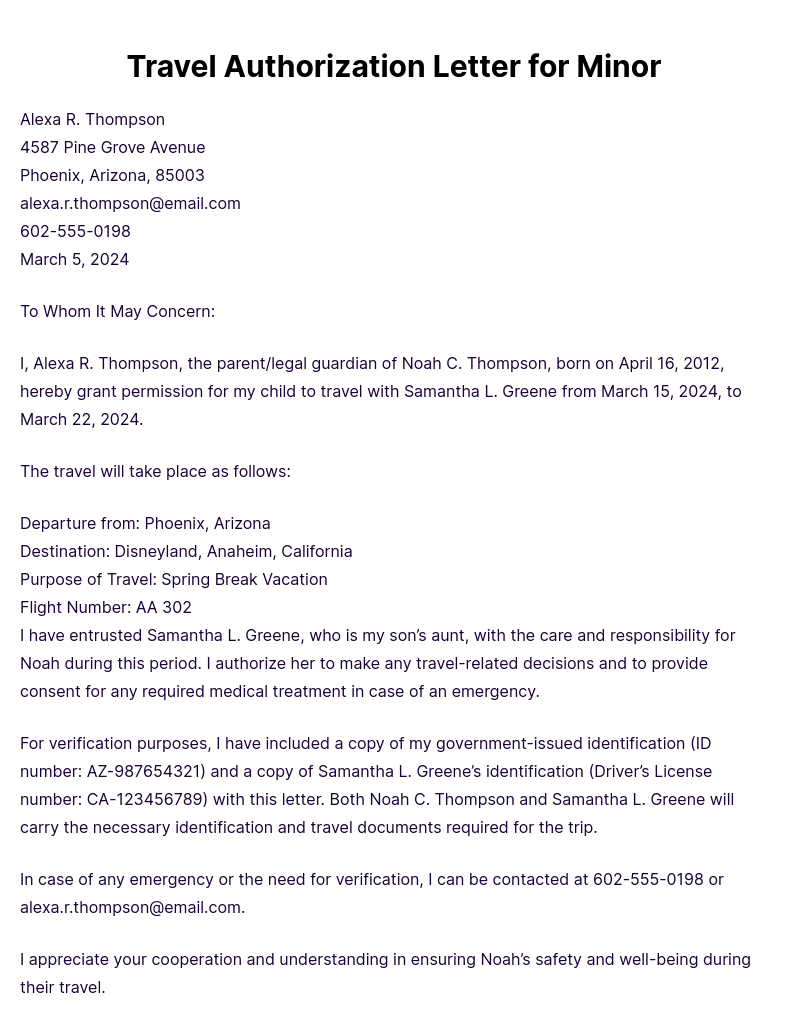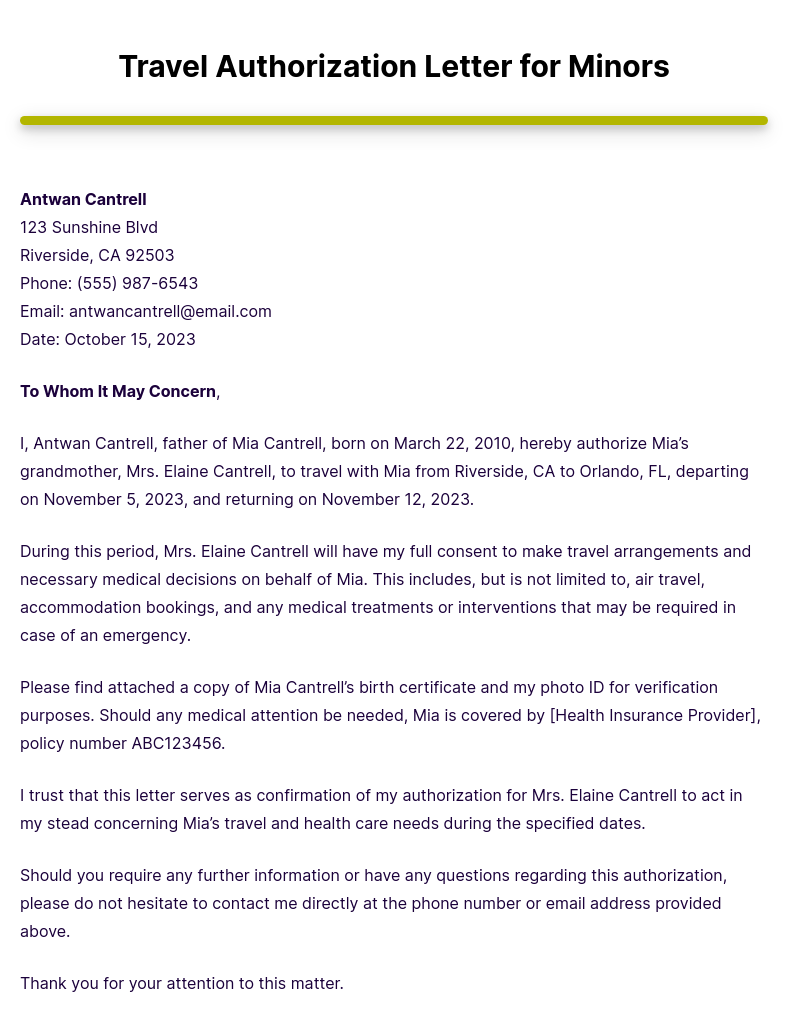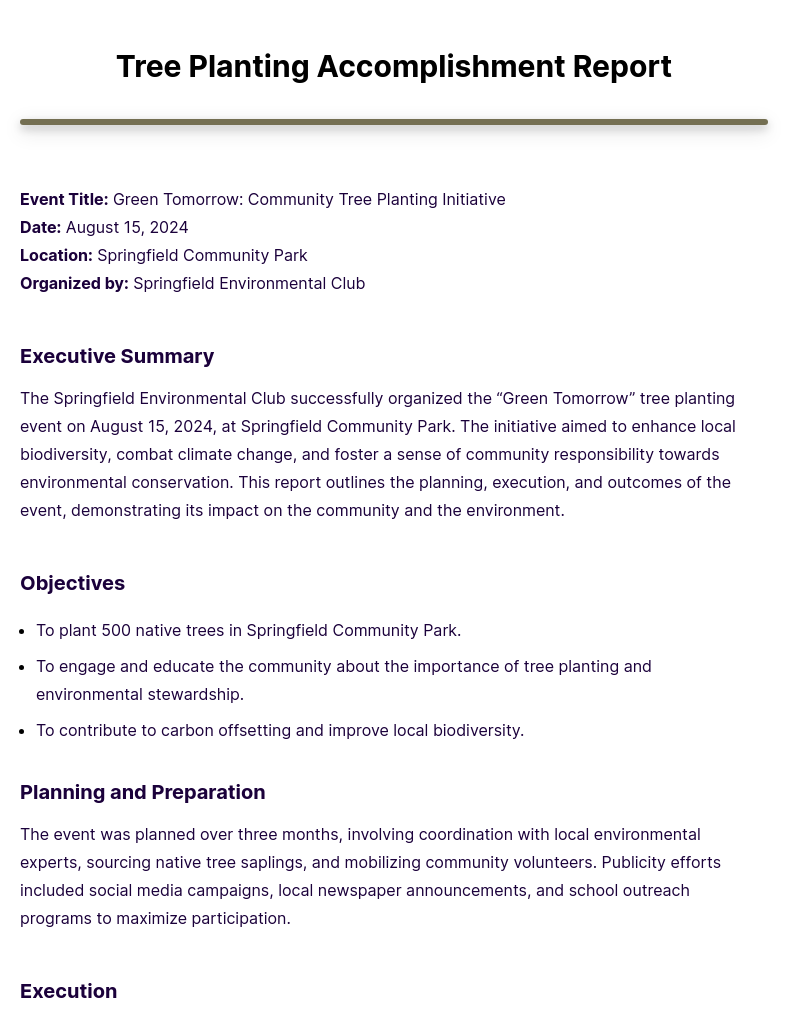Theme
What is Theme? – Definition
A theme is the central idea, message, or underlying meaning of a literary work. It serves as the foundation that ties together all elements of the narrative, helping to convey the author’s intended message or insight about life, society, or human nature.
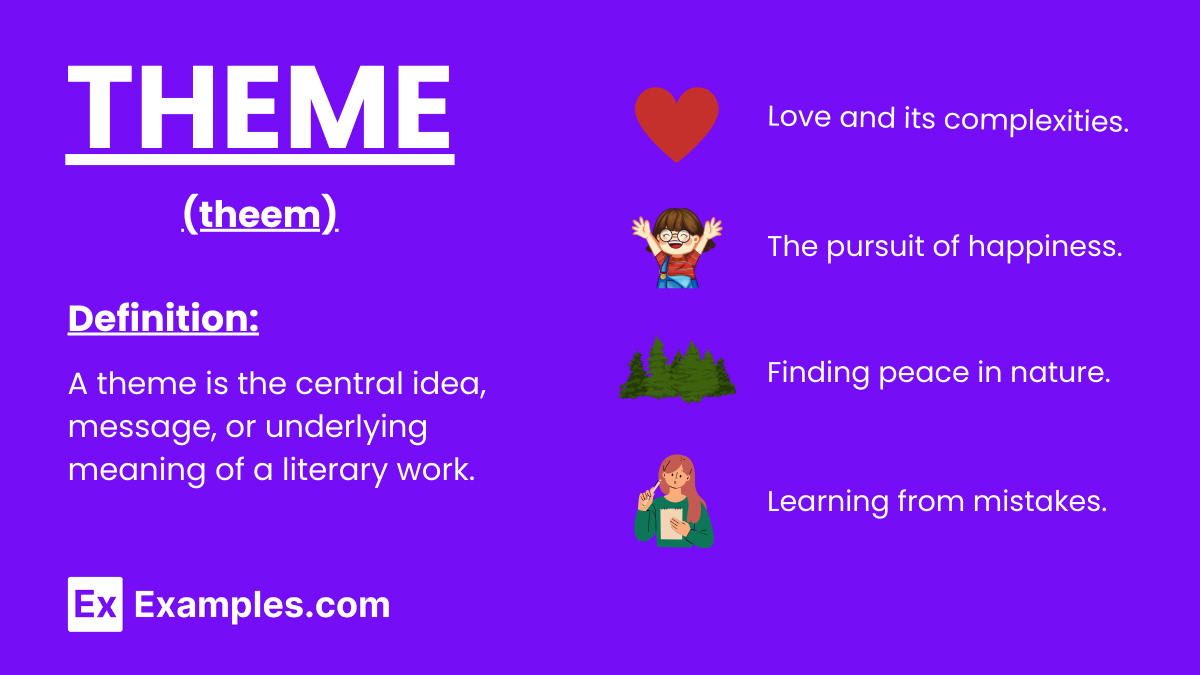
Generated Theme Examples

Examples of Themes
- Love conquers all.
- The importance of family bonds.
- The beauty of nature’s simplicity.
- The struggle for survival.
- Overcoming personal challenges.
- The fight for freedom.
- The power of knowledge.
- The pursuit of happiness.
- Hope in the face of adversity.
- The complexity of human nature.
- The dangers of unchecked power.
- The inevitability of change.
- The cost of war.
- The consequences of greed.
- The innocence of childhood.
- The journey of self-discovery.
- Global unity and peace.
- The impact of isolation.
- The circle of life.
- The pursuit of truth.
- The cycle of rebirth.
- Compassion for others.
- Harmony between humans and nature.
- The value of perseverance.
- Sacrifice for a greater cause.
- The duality of human nature.
- The wonder of curiosity.
- The inevitability of death.
- The importance of trust.
- The price of ambition.
- The fragility of peace.
- The passage of time.
Types of Themes
Universal Themes
Themes that are timeless and can be understood by people across cultures and generations.
- Love and sacrifice.
- The struggle for freedom.
- Good vs. evil.
- The inevitability of death.
- The pursuit of happiness.
- The complexity of human nature.
- The bonds of friendship.
- The resilience of the human spirit.
- The cycle of life and death.
- The power of hope.
Societal Themes
Themes that focus on society, culture, and interactions between individuals and their communities.
- The impact of technology on society.
- The fight against injustice.
- The importance of family and community.
- The consequences of war.
- The dangers of corruption.
- The influence of urbanization on society.
- The role of education in social change.
- Public health and safety.
- Cultural diversity and inclusion.
Environmental Themes
Themes that focus on the relationship between humans and the environment, highlighting conservation and sustainability.
- The importance of conservation.
- The beauty of the natural world.
- The dangers of pollution.
- The impact of climate change.
- Living in harmony with nature.
- The interconnectedness of ecosystems.
- The loss of biodiversity.
- The scarcity of clean water.
- The role of renewable energy.
- The dangers of deforestation.
Inspirational Themes
Themes that inspire readers and audiences to aspire for greatness, hope, and positivity.
- Chasing dreams and aspirations.
- The triumph of the human spirit.
- Rising above challenges.
- The power of kindness.
- Unity in diversity.
- Building bridges through empathy.
- The strength of collective action.
- The spark of innovation.
- The value of persistence.
- The impact of mentorship and guidance.
Personal Themes
Themes that deal with individual experiences, emotions, and growth.
- Self-discovery and identity.
- Overcoming fear and challenges.
- The power of forgiveness.
- Coping with loss and grief.
- Achieving personal goals.
- Finding meaning in life’s struggles.
- Personal growth and healing.
- Gaining clarity and wisdom.
- Resilience in the face of adversity.
- Overcoming self-doubt.
Philosophical Themes
Themes that explore existential questions and the nature of humanity.
- The meaning of life.
- The duality of human nature.
- The existence of free will.
- The inevitability of mortality.
- The pursuit of truth and knowledge.
- The balance between good and evil.
- The search for universal ethics.
- The nature of consciousness.
- The cycle of life and rebirth.
- The conflict between destiny and choice.
How to Identify/Find a Theme?
To identify a theme, look for the central idea or message that runs throughout a piece of literature, art, or any narrative. Themes often reflect universal truths or insights about human nature, society, or life.
- Look for recurring ideas, symbols, or motifs in the story or text.
- Identify the conflicts or challenges the characters face and their resolutions.
- Consider the moral, lesson, or insight the work conveys about life or society.
- Pay attention to what the author emphasizes or critiques throughout the work.
- Look at how the title, setting, and tone support the central theme.
How to Develop a Theme?
Develop a theme by consistently weaving it into your narrative through character development, conflicts, setting, and resolution. Ensure that the theme aligns with the overall purpose or message you want to convey.
- Choose a theme that resonates deeply with your audience or purpose.
- Use symbols, themes, or imagery to emphasize the theme.
- Integrate the theme into character actions, dialogues, and decisions.
- Ensure every element of your story contributes to the exploration of the theme.
- Keep the theme subtle and let it emerge naturally to avoid overt preaching.
Other Theme Examples
Themes in Daily Life
Daily life often reflects universal themes like love, perseverance, or conflict, revealing lessons and values through everyday experiences.
- The struggle to achieve dreams.
- The value of hard work and determination.
- The importance of family and relationships.
- Facing fears and challenges head-on.
- The pursuit of happiness.
- Love and its complexities.
- Learning to forgive and forget.
- Balancing work and personal life.
- Finding peace in nature.
- Understanding mental health challenges.
Themes for Kids
Simple and engaging themes that teach children moral lessons, like honesty, kindness, and courage.
- The value of sharing and friendship.
- Bravery in the face of fear.
- Learning from mistakes.
- Kindness towards others.
- Curiosity and the joy of learning.
- Appreciating small acts of kindness.
- Teamwork and cooperation.
- Respecting animals and nature.
- Fairness and equality.
- Learning from past experiences.
Themes for Students
Inspiring themes for students that encourage growth, resilience, and the pursuit of knowledge.
- The power of education and learning.
- Overcoming obstacles to achieve goals.
- Exploring creativity and innovation.
- Embracing teamwork and collaboration.
- Balancing ambition with well-being.
- The importance of mental health.
- Adapting to change in a dynamic world.
- Building a strong moral character.
- Discovering potential and talent.
Themes in Poetry
Powerful themes in poetry that evoke emotions and resonate with universal human experiences.
- The beauty of nature and its cycles.
- The fleeting nature of time.
- Love in its various forms.
- The struggle for identity and belonging.
- Exploring hope and despair.
- The healing power of nature.
- The quest for knowledge and truth.
- Loss and longing.
- Passion and rebellion.
- The ever-changing flow of life.
Technological Themes
Themes that explore the impact of technology on society, culture, and individual lives.
- The ethical implications of artificial intelligence.
- The role of technology in connecting the world.
- The challenges of cybersecurity in modern life.
- The future of robotics in daily life.
- The exploration of space through technology.
- The addiction to social media and digital devices.
- The impact of big data on privacy.
- The digital divide between urban and rural areas.
- The innovation of renewable energy technologies.
Cultural Themes
Themes that explore the diversity, traditions, and heritage of different cultures worldwide.
- Unity in diversity.
- Preservation of cultural heritage.
- The influence of traditions on modern life.
- The impact of colonization on identity.
- The blending of cultures in a globalized world.
- The significance of cultural rituals and ceremonies.
- The role of art and storytelling in preserving history.
- The connection between culture and nature.
- The generational transmission of values.
- The resilience of indigenous communities.
Explore Other Literary Devices
Elevate Your AP English Preparation
Unlock your potential with our comprehensive AP English exam preparation tools designed to help you excel.
- Extensive Question Bank: Access 900+ exam-like questions for both AP English Language and Literature.
- Expertly Crafted: Questions mirror the structure and difficulty of actual AP exams, ensuring relevant practice.
- Detailed Explanations: Understand your mistakes with clear, concise breakdowns of correct and incorrect answers.
- Personalized Learning: Tailor your study sessions with topic-specific tests and adaptive learning tools.
- Comprehensive Coverage: Master all aspects of the AP English curriculum with extensive guides and resources.
Frequently Asked Questions
-
What is a theme?
A theme is the central idea, message, or underlying meaning of a story, poem, or piece of writing that reflects universal truths or insights about life. -
Why are themes important in literature?
Themes provide depth and meaning to stories, helping readers connect with the narrative by exploring universal ideas, moral lessons, and emotional experiences. -
Can a story have more than one theme?
Yes, stories often explore multiple themes simultaneously, reflecting complex ideas and diverse human experiences that contribute to a richer narrative. -
How do I identify the theme of a story?
To identify a theme, consider the main ideas, recurring symbols, and the characters’ actions and conflicts, as well as the overall message or moral conveyed by the narrative. -
How can I incorporate themes into my writing?
To incorporate themes, think about the message or ideas you want to convey, create characters and conflicts that reflect those ideas, and weave them naturally into the narrative and dialogue. -
What are some common themes in literature?
Common themes in literature include love, power, good vs. evil, the quest for identity, the human condition, survival, and the passage of time, among many others.



